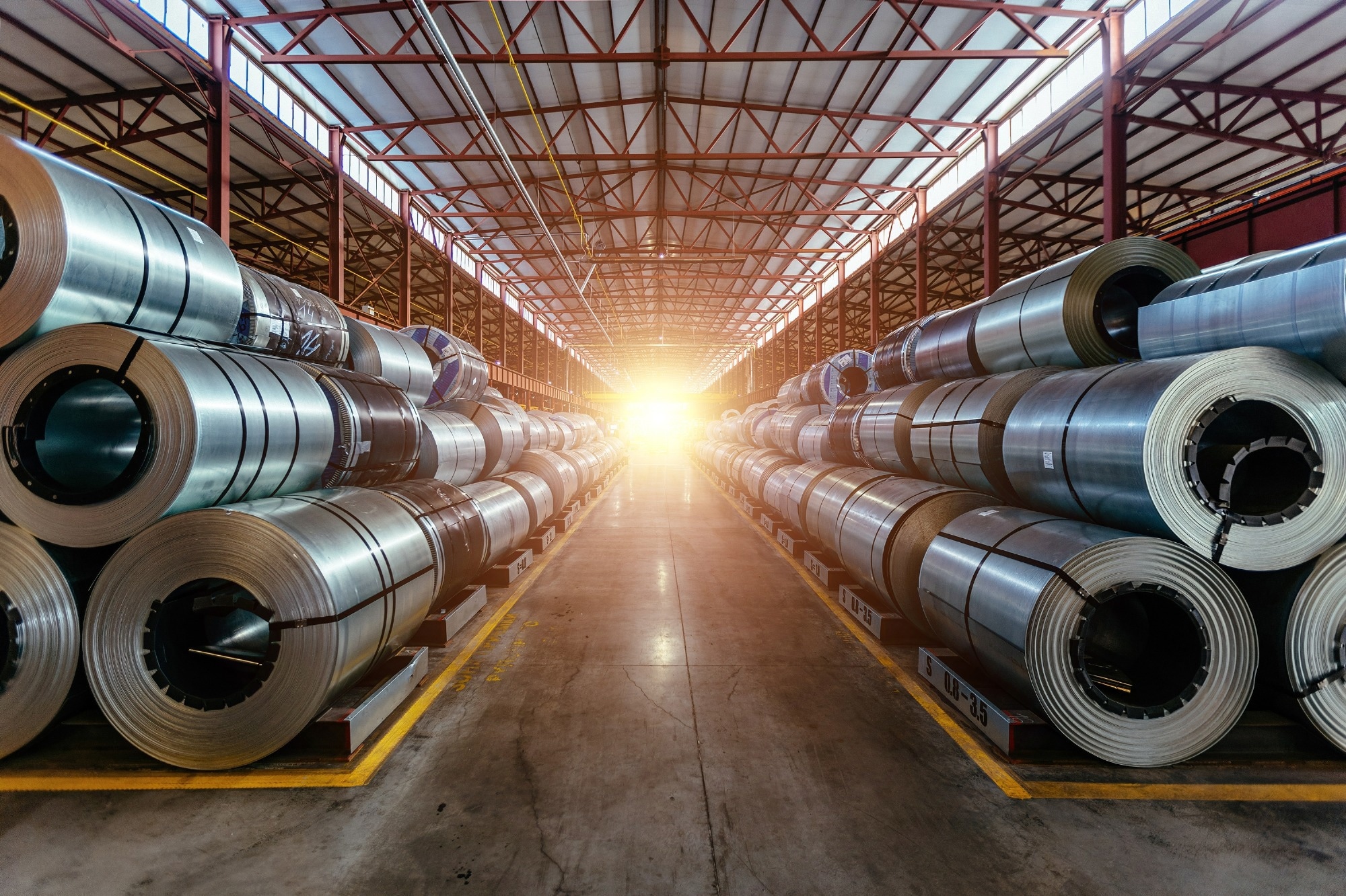Setting a new precedent in the steel industry, British Steel has announced a monumental £1.25 billion initiative aimed at radically transforming its production processes. This groundbreaking proposal, centered around the adoption of electric arc furnace (EAF) technology, is not just a stride towards environmental sustainability but a catalyst for transformative change across multiple commercial industries.

Image Credit: Vladimir Mulder/Shutterstock.com
By reducing carbon emissions significantly, this initiative positions British Steel as a pioneer in the creation of eco-efficient steel - a critical material in sectors ranging from construction to automotive manufacturing. The potential benefits of this development are vast, offering industries an opportunity to integrate environmentally responsible practices without compromising on quality or efficiency.
Revolutionary Shift in Steelmaking
At the heart of this transformative proposal lies the decision to replace the traditional, high-emission iron and steelmaking processes at Scunthorpe with two state-of-the-art electric arc furnaces. This move is not just about adopting new technology; it represents a fundamental shift in British Steel's operational philosophy. The transition to EAF steelmaking, anticipated to be operational by late 2025, is expected to cut the company's CO2 emissions drastically, underscoring its commitment to becoming a clean, green, and sustainable business entity.
Understanding the complexities of such a significant overhaul, British Steel has initiated dialogues with trade unions, emphasizing its dedication to employee welfare during this transition. In collaboration with North Lincolnshire Council, the company is also devising a master plan to invite new businesses and job opportunities to the Scunthorpe site, ensuring a holistic approach to this transformation.
Commitment to Net-Zero Ambitions
The CEO and President of British Steel, Xijun Cao, highlights the company's unwavering commitment to manufacturing low-embedded carbon steel in the UK.
Our desire to dramatically reduce our carbon footprint, coupled with current market conditions, means we can’t wait and need to transform our business as quickly as possible. And while decarbonisation will not happen overnight, it’s imperative we take swift and decisive action to ensure a sustainable future for British Steel.
Xijun Cao, CEO and President of British Steel
Despite exploring the feasibility of achieving net-zero emissions with current blast furnace operations, detailed studies have concluded that electrification is the most viable path forward. This aligns with British Steel's Low-Carbon Roadmap introduced in October 2021, which set ambitious targets for CO2 intensity reduction by 2030 and 2035. The new proposal accelerates this journey, aiming for a staggering 75% reduction in CO2 intensity.
Technical Analysis and Market Conditions
Delving into the technical aspects, British Steel examined the possibility of establishing a large EAF in Scunthorpe. However, the requirement for a new National Grid connection, projected to be available only by 2034, led to the decision to opt for two smaller furnaces. This strategic choice ensures the production volumes needed while aligning with the market's immediate demands and environmental goals.
In preparation for this ambitious project, British Steel has engaged in feasibility studies and discussions with local councils and authorities, including Redcar and Cleveland Borough Council and the Tees Valley Combined Authority. The company is on the verge of submitting Environmental Impact Assessments, a crucial step in securing necessary planning approvals.
Future Outlook
British Steel’s steadfast belief in electrification as a sustainable solution is evident in its proactive approach to decarbonization, which also supports sustainable employment.
This £1.25 billion proposal is more than an environmental initiative; it's a visionary step towards redefining steel production in the UK and globally. By embracing electric arc furnace technology, the company is not only addressing the urgent need for decarbonization but also setting new standards for the industry.
This transition, pivotal for the future of steel manufacturing, holds immense promise for commercial industries, positioning British Steel as a leader in the pursuit of a sustainable future.
References and Further Reading
-
British Steel today unveils £1.25 billion proposal to decarbonize its operations (no date) British Steel Today unveils £1.25 billion proposal to decarbonize its operations. Available at: https://britishsteel.co.uk/news/british-steel-today-unveils-125-billion-proposal-to-decarbonise-its-operations/ (Accessed: 07 November 2023).
-
Kim, J. et al. (2022) ‘Decarbonizing the iron and steel industry: A systematic review of sociotechnical systems, technological innovations, and policy options’, Energy Research & Social Science, 89, p. 102565. Available at: https://www.sciencedirect.com/science/article/abs/pii/S2214629622000706.
-
(2022) Decarbonising steel - shell global. Available at: https://www.shell.com/shellenergy/steel/_jcr_content/root/main/section/simple/simple_1035108917/promo_881768103_copy/links/item0.stream/1686707982764/4325d9853bb4642f24567c82a07002070af6161d/shell-decarbonising-steel.pdf (Accessed: 07 November 2023).